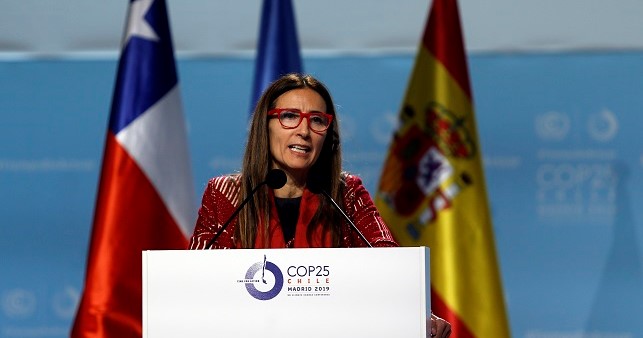As UN Climate Change Conference (COP25) effectively came to an end on Sunday, December 15, 2019, national delegates have been accused of failing once more to step up to the existential challenge of the climate crisis.

For two weeks, negotiators tinkered with the last bits of the so-called “Rulebook” of the Paris Agreement – the set of detailed provisions that are supposed to guide the implementation of the 2015 climate accord. On virtually each item on the agenda, a few large and powerful countries with vested interests in coal, oil and gas, are said to have stubbornly blocked progress.
This, said observers, was in stark contrast to the demands for swift and radical action coming from the millions of people who have been marching in climate strikes in 2019 as well as to the increasingly concerned warnings of scientists and researchers.”
May Boeve, 350.org Executive Director, said: “COP25 was a success for the fossil fuel industry – their interest have won, effectively blocking the process and undermining the end result. As time ran out, the COP looked more and more like a hostage situation inside a burning building – together with most negotiators, people and planet were held captive, as the fossil fuel industry and a few loud governments who have been delivering on their agenda took over the process. In the end, after forcing negotiators to keep at it for three days straight, they got what they wanted – a weakened text that kicks most of the big issues down the road to COP26.
“Let’s be crystal clear – after a year of climate strikes and the increasingly stark warnings of science, the only acceptable response to the climate breakdown was and still is for governments to commit to start phasing out fossil fuels immediately, including finance flows to this deadly industry. This was the only real benchmark for success, and on this important test, once again, politicians have failed us.
“The climate talks themselves turned into yet another stalemate, where big polluters and governments controlled by the fossil fuel industry got to block or slow down the process. Given the science, a stalemate means we’re all losing. The gulf between what we know must be done and what politicians are willing to do has never been wider. There is no excuse for this appalling lack of courage and responsibility, and no rational explanation other than the fossil fuel industry’s toxic grip on our politics.
“Youth activists and Indigenous leaders from all over the world brought into the climate negotiations the moral clarity that the process was lacking. Instead of being heard, these people were literally kicked out of the door, and lobbyists were left into craft intricate rules to hide the fact that not enough is being done.
“The climate talks are over for this year, but citizen activism is not. We are going to bring our activism home, to capitals, ministries, bank headquarters and fossil fuel infrastructure all over the world. We are going to keep marching and disrupting and pressuring our politicians. And we are going to vote, and campaign, and make our voices heard.
“Support is growing everywhere for the climate policies we need. People want a just transition that works for everyone, people and planet, especially for the most vulnerable and most impacted by the unfolding crisis. Some are calling 2019 the year of youth climate protest, but you haven’t seen anything yet.”
